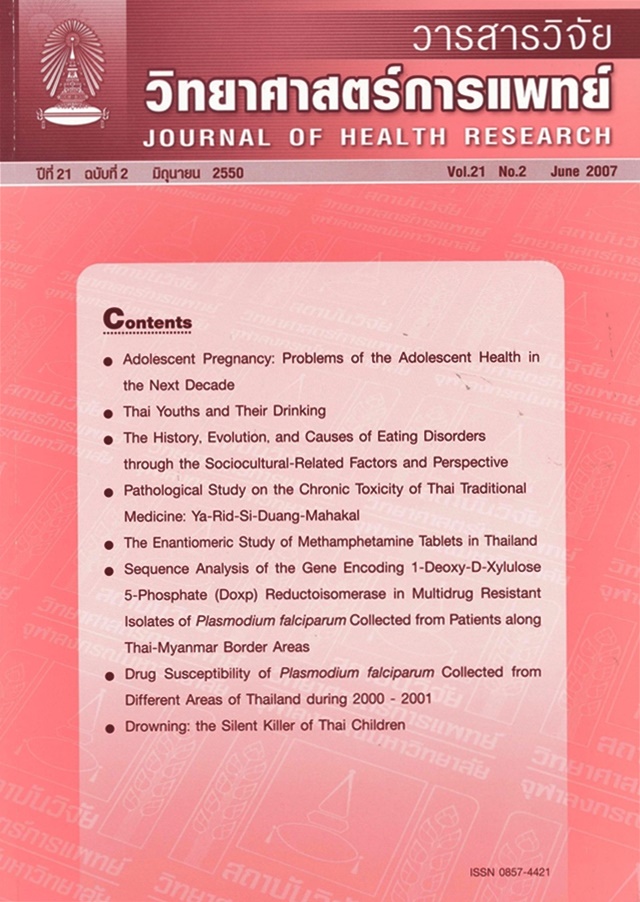Sequence Analysis of the Gene Encoding 1-Deoxy-D-Xylulose 5-Phosphate (Doxp) Reductoisomerase in Multidrug Resistant Isolates of Plasmodium falciparum Collected from Patients along Thai-Myanmar Border Areas
Keywords:
1-deoxy-D-xylulose 5-phosphate (DOXP) reductoisomerase, Plasmodium falciparum, FosmidomycinAbstract
The isoprenoid biosynthesis pathway in Plasmodium falciparum has shown to be the effective drug target of malaria treatment. The new antimalarial drug, fosmidomycin and its derivative FR900098 acts through inhibition of the 1-deoxy-D-xylulose 5-phosphate (DOXP) reductoisomerase which is the second enzyme in the reaction cascade of the DOXP pathway. In recent clinical trials performed in Thailand, fosmidomycin proved to be efficient in the treatment of patients suffering from acuted, uncomplicated P. falciparum malaria. However, the sequence diversity of the gene encoding DOXP reductoisomerase in malaria parasites has not been reported. Here we show for the first time that the DOXP reductoisomerase gene is highly conservation among multidrug resistant P. faciparum isolates collected from patients along Thai-Myanmar border areas; Maesod district, Tak province, Saiyok district, Kanchanaburi province and Maungranong district, Ranong provinces of Thailand that mean the DOXP reductoisomerase are also conserved among P. falciparum in different geographical areas in Thailand. Therefore, inhibiting the growth of multidrug resistant P. faciparum isolates by DOXP reductoisomerase inhibitors will be consistency. The finding suggested that the isoprenoid synthesis pathway is attractive to identify for inhibitors for the future drug target for malaria chemotherapy.







